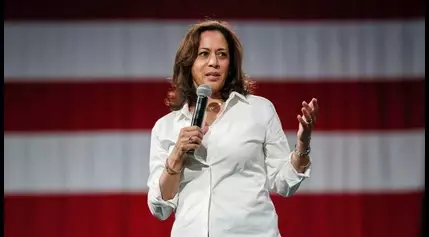Finance

Navigating the Shifting Political Landscape: How Kamala Harris Differs from Joe Biden on Key Financial Issues
As the presidential election looms, the country is abuzz with questions about the potential impact on the economy and individual finances. With Joe Biden's departure and Kamala Harris taking the helm, experts predict significant changes ahead. While Biden and Harris share many similarities in their political stances, their nuanced differences could have far-reaching consequences for your wallet.Unlocking Financial Opportunities in the Next Administration
Tax Reforms: Balancing Progressivism and Pragmatism
One of the key areas where Harris and Biden diverge is in their approach to taxation. Harris tends to favor more progressive tax policies, aiming to address wealth inequality through targeted reforms. In contrast, Biden had a more balanced approach, seeking to strike a middle ground between the needs of the wealthy and the working class. Under a Harris administration, tax reforms could potentially favor certain industries, potentially benefiting the average worker. "Her stance on increasing taxes for higher-income earners could lead to increased government spending in areas like healthcare and education," explains finance advisor Justin Godur, "which could, in theory, alleviate some of the higher costs for the average person."However, this more aggressive approach to taxation could also have its drawbacks. Godur cautions that "Harris's expansive social programs could lead to higher government spending, which might spur inflation if not balanced by increased revenues." Striking the right balance between taxation, government spending, and economic growth will be a crucial challenge for the next administration.Infrastructure Investments and Wages: Accelerating Change
Another notable difference between Biden and Harris lies in their approach to infrastructure investments and their impact on wages. While Biden emphasized a more gradual, centrist approach, Harris has proven to be more progressive and aggressive in her policy goals."[Biden] emphasizes moderate tax increases primarily targeting corporations and the wealthy, along with substantial infrastructure investments," Godur explains. "Biden's focus on strengthening the economy through infrastructure could lead to job creation and potentially higher wages."In contrast, Harris's policies tend to be more focused on social justice and economic equity, pushing for higher minimum wages and tax reforms to reduce wealth inequality. This more ambitious approach could potentially lead to faster, more tangible changes for the average worker."Harris tends to be more aggressive on social justice and economic equity, pushing for higher minimum wages and tax reforms to reduce wealth inequality," says Godur. "This is in contrast to Biden's more balanced progressive goals and more pragmatic policies."Social Programs: Balancing Expansion and Fiscal Responsibility
Both Biden and Harris have long emphasized the importance of sustaining social programs, but their approaches differ in significant ways. Harris appears to be more progressive in this area, prioritizing substantial investments in programs like Medicare and Social Security.While this could provide more immediate relief for lower-income individuals, Godur cautions that it could also come with potential drawbacks. "Harris's expansive social programs could lead to higher government spending, which might spur inflation if not balanced by increased revenues," he explains.In contrast, Biden's infrastructure-driven approach was more focused on long-term economic growth and stability, which could have a more stabilizing effect on inflation and interest rates. This is a crucial consideration for the average consumer, as rising inflation and interest rates can significantly impact the affordability of everyday goods and services, as well as major purchases like real estate and vehicles.Ultimately, the success of either approach will depend on the administration's ability to balance increased social spending with measures to maintain economic stability and growth. If Harris can effectively manage this balance, her more progressive policies could provide tangible benefits for lower-income households.Targeted Financial Relief: Addressing Immediate Needs
One area where Harris appears to diverge more significantly from Biden is in her focus on providing targeted financial relief to lower-income households. This stems from her push for higher minimum wages and expanded social safety nets.While this approach could provide more immediate relief for those struggling financially, it may also result in higher operational costs for business owners. However, the potential upside is that lower-income individuals could see more direct and timely support under a Harris administration.It's worth noting that both Biden and Harris have made strides in this area. For example, the Biden-Harris administration has forgiven approximately 3 billion in student loans for nearly 4.3 million borrowers nationwide. This type of targeted relief can have a significant impact on individual finances.Ultimately, the differences between Harris and Biden on financial issues are nuanced, with both leaders aiming to address the needs of the American people in their own ways. "Harris's policies might benefit lower-income individuals through direct support, whereas Biden's approach could foster a stable economic environment conducive to broader financial growth," Godur observes.As the country prepares for the next chapter, it will be crucial for voters to carefully consider the potential implications of each candidate's policies on their personal finances and the overall economic landscape.

